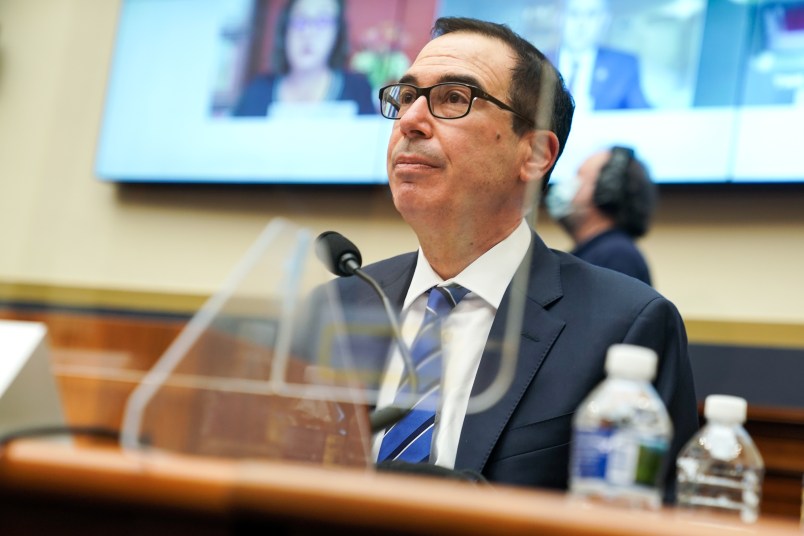We’ve been following a predictable pattern in this column since Donald Trump lost his bid for a second term in the White House: First, Trump used the levers of the federal government to resist the inevitable, clawing at the Oval Office carpet as reality dragged him out the door. Then, acknowledging Trump’s loss somewhat, his administration rushed to get its last-minute priorities in under-the-wire.
Now, the team has added a sixth stage of grief: Salting the earth.
Left without options, the Trump administration is slamming the door on Joe Biden’s fingers, in part through a little-noticed personnel change that could be a major headache for the next President’s early months in office.
It’s known as “Schedule F,” a new class of the civil service that Trump created in an executive order in October. We reported on the order earlier this week, just after it became clear that several executive branch agencies would in fact try to fulfill Trump’s wishes, despite the rapid timeline they have to follow.
In short, Trump wants to strip job protections from thousands of federal employees and make them easier to fire. Late last month, the Office of Management and Budget became the first to assemble its list of civil servants that the office’s political leadership thinks should be easier to dismiss — 88 percent of the office’s workforce qualified, a staggering number — but others are following suit.
Importantly, the trouble isn’t constrained to existing members of the civil service: Ron Sanders, who resigned from his position as Federal Salary Council in protest of the change, called that aspect of the Schedule F change only one half of “a very sharp, two-edged sword.”
The other half, he said, is that the executive order makes it easier to “burrow” Trump’s political appointees into the government as federal employees. Yes, Biden may be able to get rid of these people using Trump’s own rules, but it will be a headache, and a distraction that the incoming administration may decide it doesn’t have time to pursue.
“It’s very well possible that this could be used as a way to burrow in people that are more politically aligned with one administration over another,” Tim Stretton, a policy analyst at the Project on Government Oversight, told me. Stretton pointed out the timing of Trump’s order, published a few days before Nov. 3.
“Could this have been an insurance policy to really have that impact on future administrations? It’s very well possible,” he said.
Treasury Secretary Steve Mnuchin provides another glimpse at the Trump administration’s final moves.
Last month, Mnuchin said that he would claw back billions of federal Cares Act dollars from the Federal Reserve at the end of the year, seriously hindering the next administration’s ability to use that money to cushion the economic blow of COVID-19.
The New York Times reported that the decision caught the Fed by surprise and noted the withdrawal of the government funds “could leave significant corners of the financial world vulnerable to the type of volatility that cascaded through the system as virus fears mounted in the spring.”
Paul Krugman, the Nobel laureate in economics, was more blunt: “Mnuchin is effectively trying to create a financial crisis, or at least make one more likely,” he wrote.
Rep. Katie Porter (D-CA) took Mnuchin to task for the move during a hearing Wednesday: “You are making a decision that is not aligned with the statute or congressional intent,” she said. Mnuchin stared blankly ahead.
Here’s what else we were watching this week:


 Members-Only Article
Members-Only Article
